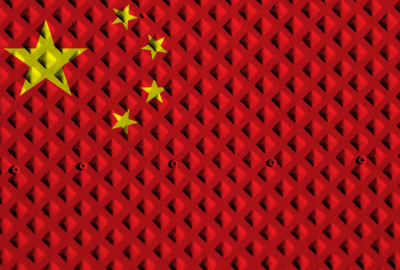Tag: Free Trade & Trade Negotiations
In this Asia-Pacific Insight, André Chieng analyses China-US relations from an economic and diplomatic perspective. While in the current trade war China could appear to be in a weak position, the debate is more subtle than it looks. "Chinese strategists have however understood that the timing is not favorable to them", Chieng write, and in the end, Beijing's policy mainly consists in "allowing Trump to claim victory and abandoning some ground to preserve the essential".
Asia-Pacific Insight: Soo-Hyun Lee (Asan Institute, Seoul) discusses the recent interventionist policies of the governments of South Korea and Japan. From banks to shipyards and technology industries, Japan and Korea have stepped into the business realm at multiple occasions in the name of the public interest. Yet, questions remain as to what are the consequences of these policies on the two countries' domestic investment climates. From an international legal point of view, Lee concludes, the legitimacy of a government intervention ultimately depends on procedural fairness. South Korea and Japan need to proceed with care: without procedural fairness, public interventions can easily shift matters of public interest into bad business and investment climates.
US - China Trade Insights: Antoine Martin and Professor Bryan Mercurio (The Chinese University of Hong Kong) discuss China - United States relations in light of recent trade developments. With the announcement of new tariffs against Chinese steel and Aluminum, President Trump has forced President Xi to react. This analysis of the'trade war' developments leads to the conclusion that the political game is changing. On the one hand, the U.S. is turning nationalistic and protectionist, even if it harms itself in the process. On the other, China is reversing the usual rhetoric and positioning itself as the god international citizen who plays by the rules. Keep reading for more.
Trade Research: Protectionism has become a trendy word recently and appears to be on the rise in various parts of the world. Starting with the United States. In reality, complex negotiations have eroded trade leadership at the WTO level and the trade policy dynamics in Washington and Brussels seem significantly compromised
Asia-Pacific Insights; Protectionism, elections, territorial stakes, foreign policy has become an increasingly relevant theme lately. In 2017, in fact, the global political economy as we know it will change. Foreign policies will be altered
China - US Relations: Antoine Martin analyzes Mr Trump's TPP and Trade policy, arguing that the 'America Great Again' idea will sooner than later give China a significant leadership role
We are living in troubled times. The British are paving their way out of the EU (trying, anyway), the major agreements which were once expected to foster growth between the United States, Europe, the Asia Pacific or Canada are seriously compromised. Trade has shifted from policy goal to political incorrectness. Let's face it
Asia-Pacific Insight: The steel industry is one of China's most significant industries, but it lives difficult times at the moment. In fact, steel overcapacity in China is not just a reality, it has become a source of diplomatic troubles. In this China insight, Antoine Martin comments on the Agreement reached by the United States and China on the matter. He concludes that little change is to be expected. Beijing has little margin of maneuver on the topic, hence overcapacity is likely to remain a burden in China-US relations.
Asia-Pacific Trade Insights: Antoine Martin comments on recent regional developments pertaining to trade negotiations in a tense APEC, TPP and FTAAP context
Whether or not China should be considered as a market economy country is a polemical topic at the moment. On the one hand, Beijing claims that it has made significant efforts to open its economy to world markets since its accession to the WTO. On the other hand, the major competing countries such as the United States or the European Union complain that such effort are not significant enough and argue that China should not be considered a market economy. In this China business insight, Antoine Martin comments on recent EU and US talks regarding the issue.
Two years after Bali, the 10th WTO Ministerial Conference is taking place in Nairobi from December 15th to December 18th. Yet, the Conference’s Goals are not seen as ambitious and, despite the long known failure of the Doha Round negotiations, some of its remains seem to persist. For better or worse
Part of the political economy challenges ahead is the evolution of trade liberalization negotiations in the Asia-Pacific region. In a comment dated June 2014, Jayant Menon (Lead Economist at the Asian Development Bank’s Office of Regional Economic Integration) actually presented a rather interesting snapshot of Asia-Pacific trade negotiations












